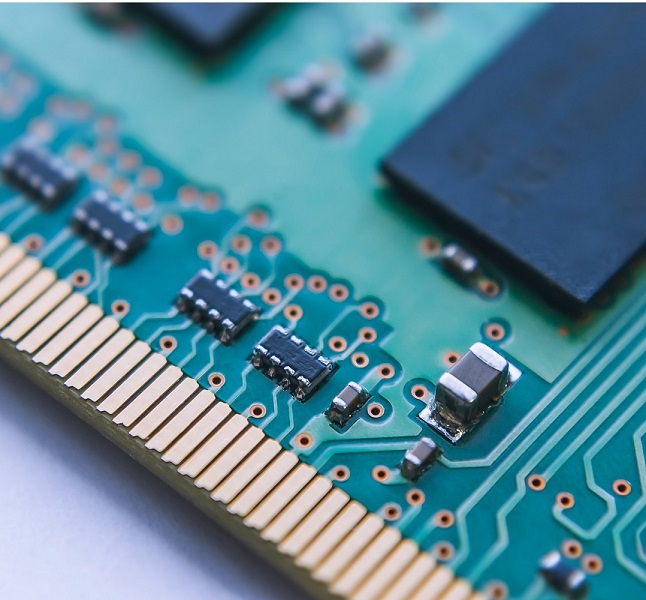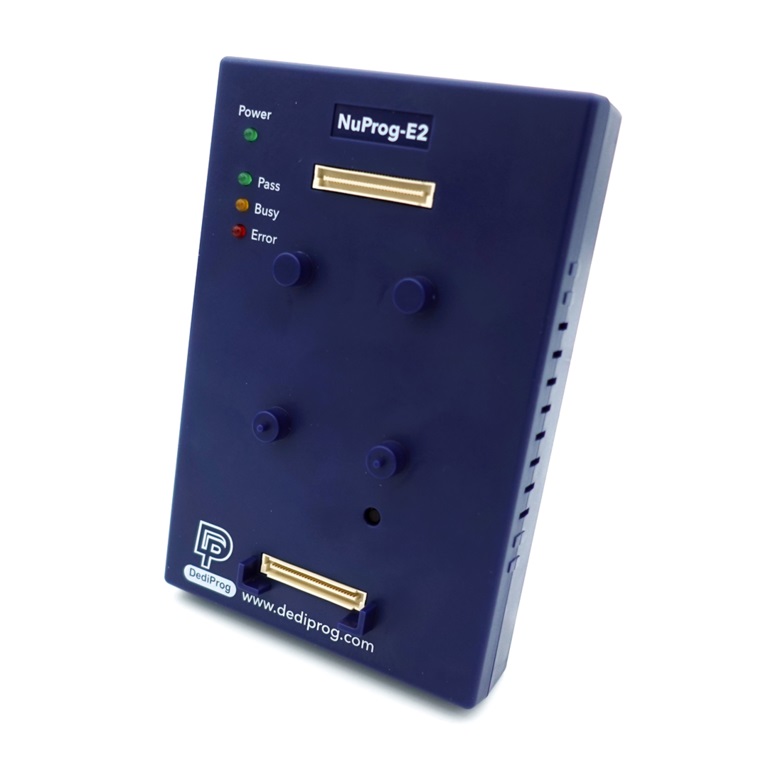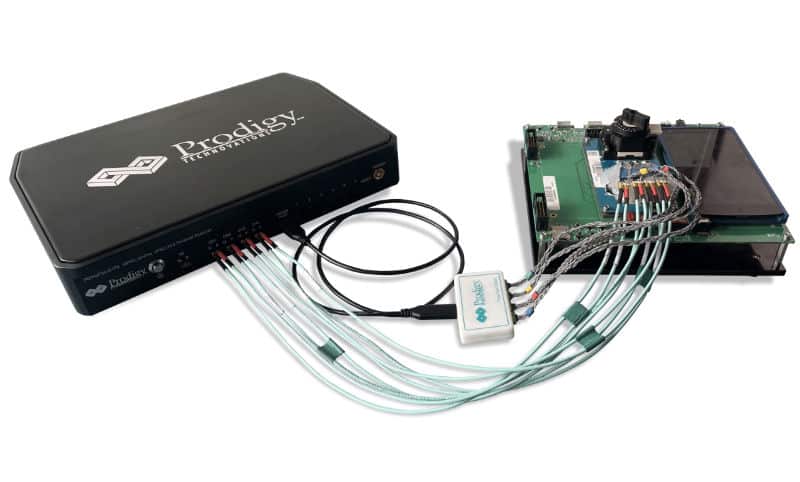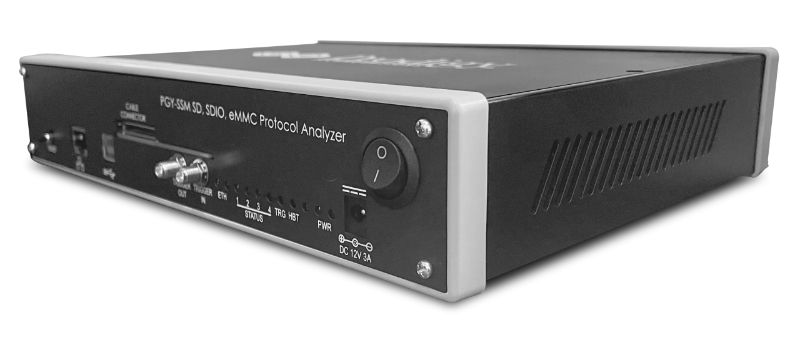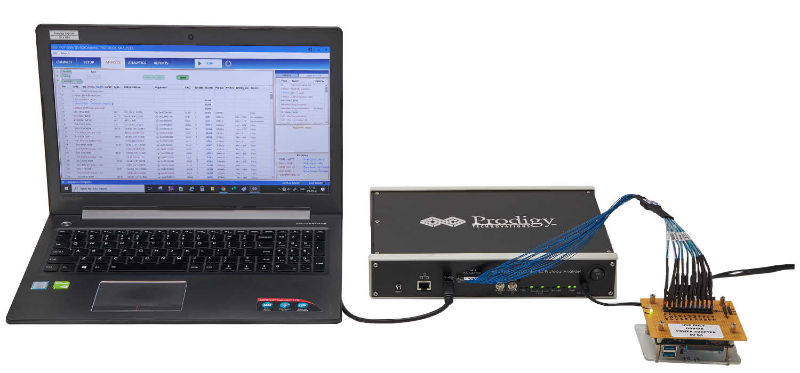
Universal Flash Storage (UFS)
Universal Flash Storage (UFS) is a standard specification for flash memory cards and flash memory in embedded systems. UFS is considered to be the successor technology of eMMC and SD cards. UFS is optimized for high-performance non-volatile flash memories. This allows faster data access and speeds to be achieved and thus also meets the increasingly higher requirements of the mobile (smartphones, tablets, laptops), industrial (embedded systems), and automotive (connected cars) sectors.
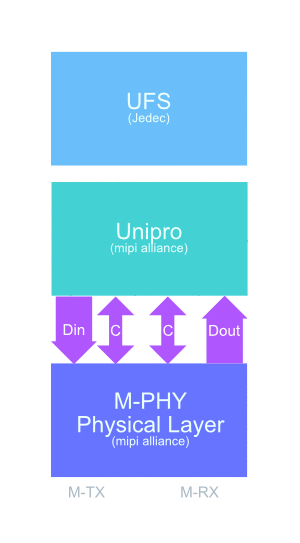
UFS Organisations
UFS is supported by the major companies in the memory and chip industry and is led by the JEDEC Solid State Technology Association working group. JEDEC is also working with the MIPI Alliance (Mobile Industry Processor Interface Alliance), because they are also responsible for the development of the MPHY and UniPro protocol.
Interfaces UFS
To achieve high energy efficiency and performance in data transmission, UFS uses well-known interface standards for its interconnect layer:
- M-PHY- specification
- UniPro - specification
UniPro acts as a universal chip-to-chip protocol that provides a common channel for other protocols.
The M-PHY interface is the primary physical layer (PHY layer) for the UniPro specification and has a fast serial interface with up to 2.9 GBit/s per lane, which can be scaled up to 5.8 GBit/s per lane.
UFS versions
| UFS | 1.0 | 1.1 | 2.0 | 2.1 | 3.0 | 3.1 |
|---|---|---|---|---|---|---|
| Released | 2011-02-24 | 2012-06-25 | 2013-09-18 | 2016-04-04 | 2018-01-30 | 2020-01-30 |
| Data transfer speed per lane | 300MB/s | 300MB/s | 600MB/s | 600MB/s | 1450MB/s | 1450MB/s |
| Number of lanes | 1 | 1 | 2 | 2 | 2 | 2 |
| Max. Data transfer speed | 300MB/s | 300MB/s | 1200MB/s | 1200MB/s | 2900MB/s | 2900MB/s |
| M-PHY Version | ? | ? | 3.0 | 3.0 | 4.1 | 4.1 |
| UniPro protocol version | ? | ? | 1.6 | 1.6 | 1.8 | 1.8 |
| UFS Map | 1.0 | 1.1 | 2.0 |
|---|---|---|---|
| Introduction | 2016 | 2018 | |
| Data transmission speed per transmission strand | 600MB/s | 600MB/s | 1200MB/s |
| Max. Number of transmission threads | 1 | 1 | 1 |
| Max. Total data transfer speed | 600MB/s | 600MB/s | 1200MB/s |
| M-PHY Version | 3.0 | 3.0 | |
| UniPro protocol version | 1.6 | 1.6 |
Advantages UFS
UFS is ideal for devices that require high performance and low power consumption.
- High performance (high data throughput)
- Low power consumption
- SCSI architecture model and thus command queuing functions to increase random read/write speeds
A high-speed serial interface targeting up to 2.9 gigabits per second (Gbps) with up-scalability to 5.8Gbps.
UFS offers low power consumption due to a low active power level and a near-zero idle power level.
Universal Flash Storage (UFS) uses the proven SCSI architecture model and command protocols that support multiple commands with command queuing capabilities, enabling multi-threaded programming. Current flash-based memory cards (SD/SDIO cards) and embedded flash solutions (emmc) only process one command at a time, reducing random read/write performance.
Tools for development
Protocol analyzers with which the data traffic can be streamed and decrypted are suitable for designing, testing and debugging memory designs. The versatile NuProg-E2 programmer, which enables the programming of UFS, eMMC, MCU, EEPROM SPI Flash etc. components, is suitable for prototyping.
Price on request
Price on request




